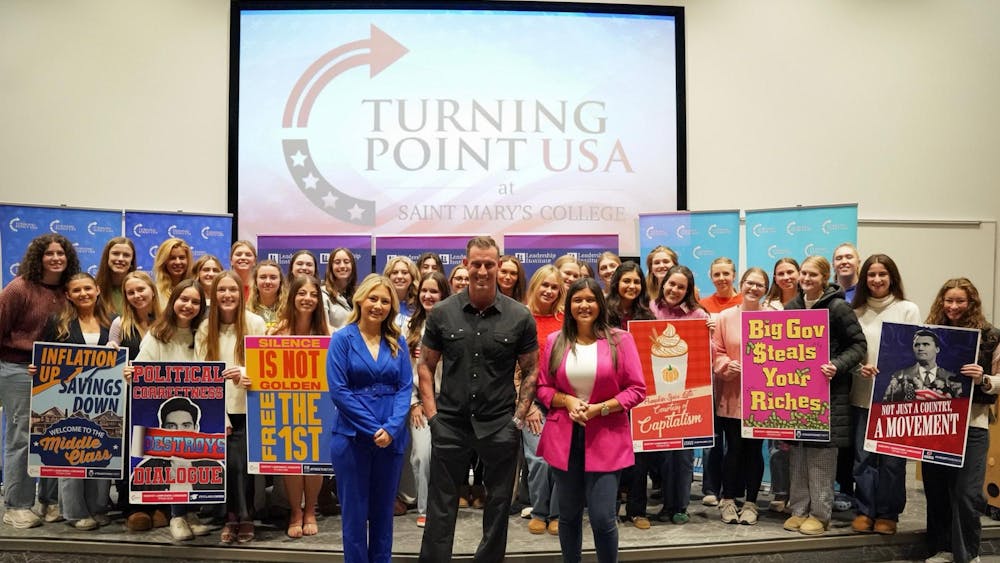As the 2018 midterm elections approach next week, our televisions, phones and computers are flooded with political ads. Candidates discuss their plans for fixing the ills of our country, giving us their viewpoints on immigration, healthcare and the economy, while attacking others for being too conservative or too liberal. Yet there is an important aspect of our democracy that is not being discussed at all: the decline of our mediating institutions. I recently had the opportunity to attend the American Enterprise Institute’s Weekend Honors Program on the role of mediating institutions in the United States. The discussion centered on how families, communities, neighborhoods, churches and voluntary organizations serve an important role of giving people a sense of place and purpose in a society. Mediating institutions are defined by Peter Berger and John Neuhaus as “those institutions standing between the individual in his private life and the large institutions of public life.” They help bridge the gap between each of us and the overarching society that we live in. These institutions serve as a safety net and are often the places we turn to in times of need. The benefits of mediating institutions can be felt here at Notre Dame. A collection of over 8,500 undergraduates, each of us are nothing more than a little fish in a big pond. It is hard for us to feel a meaningful connection to every other student on this campus. Yet we find our sense of place and purpose through our friend groups, clubs, sports teams, residence halls and academic organizations. We find enjoyment and value in these groups because the people in them share our passions, interests and values. We come together in these groups not just to be together, but also to do things together. These are the people we play intramural sports with, tailgate with before football games and rant with about our never-ending concerns as college students. When we want to address broader issues with university policy and advocate on behalf of national politics, we do not go at it alone, but with our clubs and student groups. These mediating institutions give us a sense of place and help us to reach our full potential. However, the state of mediating institutions in the United States is weakening. Families with married parents with children are becoming less common. According to the Pew Research Center, marriage rates have decreased, especially among the working class. There is now a 16-percentage point gap in marriage rates between college graduates (64 percent) and those with high school diplomas or less (48 percent). Children in working class homes are also significantly less likely to live with their biological parents than their counterparts in middle and upper-class families (55 percent versus 77 percent). These disparities help exacerbate growing income inequalities in America today. Church attendance, the percentage of adults spending a social evening with their neighbors, union membership and civic engagement such as voting and attending community meetings are also in decline. The important mediating institutions where people find their safety net, solutions and place in society are eroding. This decline is a societal problem that has gone unnoticed compared to the political and economic concerns that are so often discussed by our politicians. As Robert Nisbet states, “the real problem is not, then, the loss of old contexts but rather the failure of our present democratic and industrial scene to create new contexts of association.” The answer is not to return to an antiquated view of marriage or simply to increase the number of those of who practice religion. Instead, all forms of mediating institutions including both secular and religious organizations, cultural groups and voluntary associations must be utilized to strengthen the sense of community. By surrounding ourselves and forming communities with like-minded individuals, we help balance the demands of our own lives with those of our modern society. At the same time, we run the risk of alienating those who are different from us, leading to prejudice and discrimination. Our society must strike a fine line between the pluralism that enhances our different identities and allows our respective ideas to flourish with the tribalism that leads to alienation and conflict. It is our responsibility and challenge to rebuild our mediating institutions while reaching out to those we disagree with. Despite the over-saturation of political ads that has become all too familiar, none of our candidates are discussing this decline. We must recognize that this trend will not be reversed by a comprehensive law passed in Washington, but by each of us committed to strengthening our communities.
Alex Yom
junior
Oct. 28









